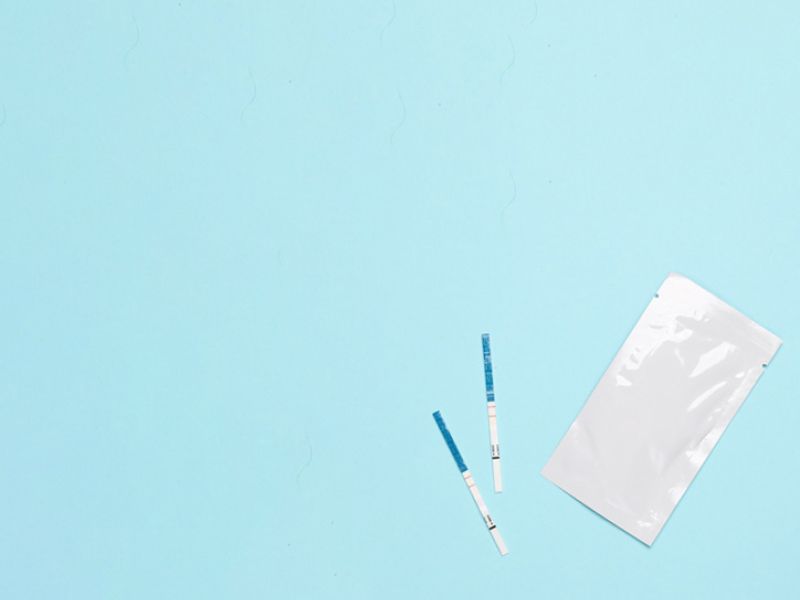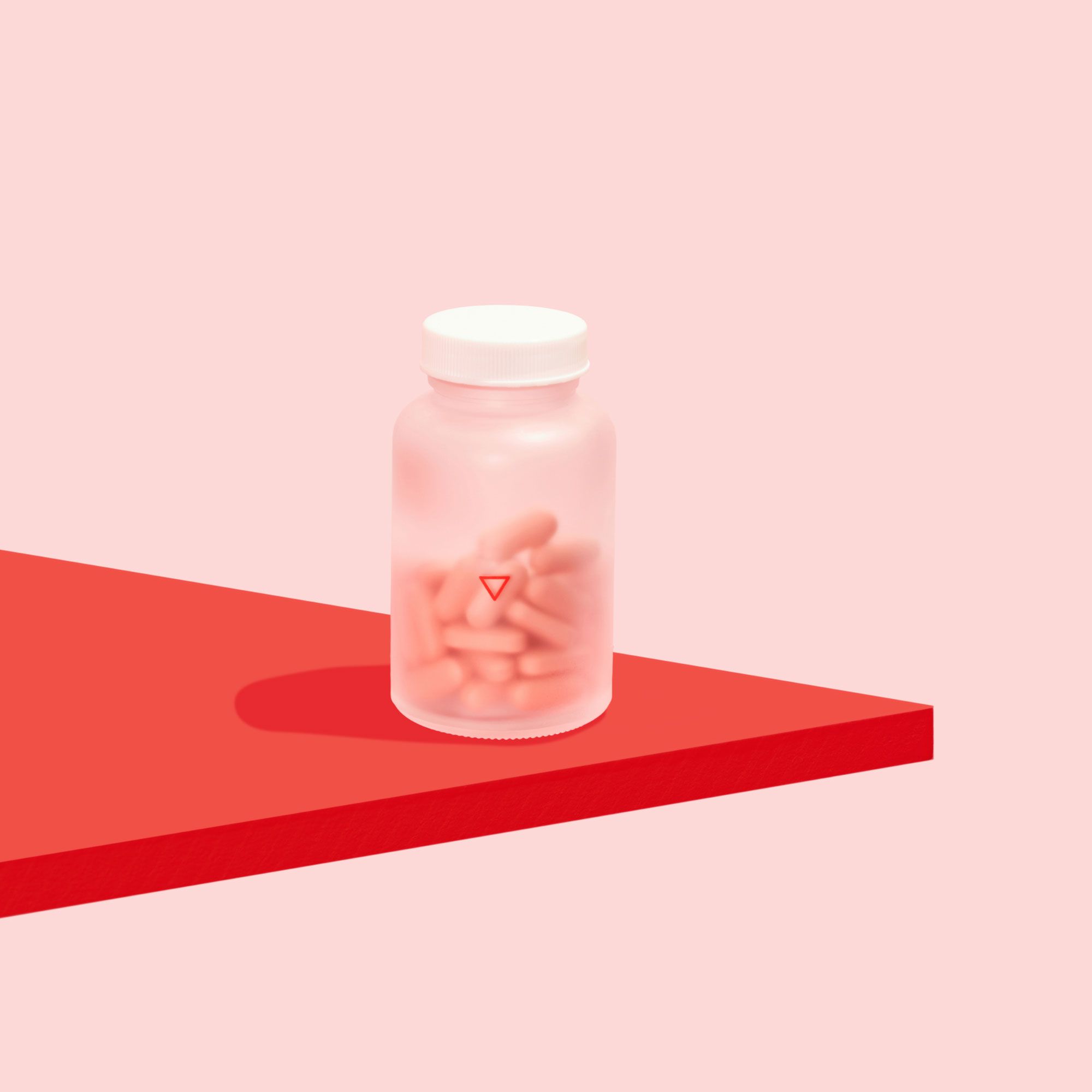
How Does Fertility Testing
for Women Work?
By Simona Byler
June 14, 2024
Do you remember the first time you ever saw a pregnant person? You might have been so young that the memory doesn’t stand out. But if you were assigned female at birth, it’s easy to start associating your sex with pregnancy right away—something your older brother or male cousin probably didn’t do. Talk about responsibility.
Whether you’re hoping to get pregnant or actively preventing it, the fact that your body can support a fetus and deliver a brand-new human is incredible. And if that’s an experience you’re dreaming of, understanding how your hormones affect fertility can help you get there. That’s why we’re here to discuss which hormones impact female fertility and how to test your hormones for fertility at home.
What hormones are involved in fertility?
Inside your miraculous, hard-working body is something called the endocrine system. Your endocrine system is made up of different glands throughout your body that produce and release hormones. And, what exactly are hormones, anyway? Hormones are chemicals that coordinate all kinds of processes in your body—including fertility and reproduction. How? By carrying signals through your blood to your organs, muscles, and other tissue.
So, with all these chemical messengers running around, which hormones impact fertility for women? Turns out, quite a few. Here’s what you need to know:
Follicle-stimulating hormone (FSH): FSH is made in your pituitary gland, and it’s one of the most important hormones for female fertility. Your ovaries have small, fluid-filled sacs—called follicles—that contain egg cells. Between days six and 14 of your menstrual cycle, FSH stimulates your ovarian follicles to grow and prepare a mature egg for ovulation. (1)
Luteinizing hormone (LH): Like FSH, luteinizing hormone is made in your pituitary gland and plays a major role in ovulation. About halfway through your cycle, a surge of LH causes your ovarian follicles to swell and release a mature egg—triggering ovulation.
Anti-mullerian hormone (AMH): AMH is a hormone secreted by early-stage ovarian follicles that helps your body maintain its immature eggs. As soon as you’re born, the number of eggs in your ovaries starts to decline. Likewise, your AMH levels decrease gradually as you age.
Progesterone: Progesterone is a critical hormone for fertility and your menstrual cycle. After ovulation, the empty egg follicle forms the corpus luteum—a temporary gland that produces progesterone. Progesterone’s primary function is to prepare the lining of your uterus—the endometrium—for the implantation of a fertilized egg.
If an egg isn’t fertilized (meaning you don’t get pregnant) the corpus luteum breaks down, your progesterone levels decrease, your endometrium thins, and you get your period. If you do get pregnant, your progesterone levels will continue to increase and support fetal development. (2)
Estradiol: Estradiol is a type of estrogen created by your ovaries. Your estradiol levels increase throughout your menstrual cycle, causing an egg to mature and release. Estradiol also thickens your endometrium so a fertilized egg can implant. After ovulation, your estradiol levels decrease.
Prolactin: Prolactin is a hormone made by your pituitary gland and is most well-known for its role in creating breast milk. However, prolactin is an important hormone in female fertility because it helps keep your menstrual cycles regular.
Thyroid hormones: Our bodies are intelligent and interconnected machines! So even though the thyroid is at the base of your neck, it produces hormones that impact your fertility. Thyroid hormones impact tissue development in your uterus, ovaries, and placenta. (3)
You can get a better sense of where you are in your fertility journey with at-home fertility testing! Proov's Complete Testing System is more affordable than in-person care, while providing insights into your FSH, estrogen, progesterone, and luteinizing hormone levels.
Can hormonal imbalance impact female fertility?
Your endocrine system’s job is to send out the correct amount of each hormone at the right time to keep your body’s functions running. But, that’s easier said than done! Sometimes your body has too much or too little of one or more hormones, and hormonal imbalances can disrupt your reproductive system.
The fertility hormones mentioned above influence each other and work together to prepare your body for a potential pregnancy. And when this delicate hormonal harmony is disrupted, it can impact your ability to conceive. Studies show that about 9 percent of men and 11 percent of women of reproductive age experience fertility issues in the U.S. (4) So if you’re having trouble getting pregnant, know that you’re not alone and that treatment options exist. But, before that, taking an at-home fertility hormone test can help you understand some potential factors of infertility.
Hormonal imbalances can affect your fertility in different ways. Some fertility issues associated with hormonal imbalances include:
- Hypothyroidism: Ovulation, or when your body releases an egg to be fertilized, is a complex process that depends on several hormones each menstrual cycle. Issues with these hormones or low levels of thyroid hormones (hypothyroidism) can upset ovulation and make it difficult to conceive. (5)
- Polycystic ovary syndrome (PCOS): If you have PCOS, your ovaries produce too much of a type of hormone called androgens. This hormonal imbalance prevents eggs from reaching maturity, instead turning into cysts. PCOS causes irregular periods and unpredictable ovulation. (6)
- Hyperprolactinemia: Remember the hormone prolactin? Well, hyperprolactinemia is when you have too much prolactin in your blood. The excess of prolactin affects your estrogen production, which can then disrupt ovulation. (7)
- Luteal phase defect: In your menstrual cycle, you enter the luteal phase after ovulation. Luteal phase defect (LPD) is associated with this phase of your cycle lasting less than 10 days, instead of the typical 12-14 days. (8) Progesterone imbalances are potentially involved in LPD, but it’s not proven to independently cause infertility or pregnancy loss.
What do at-home fertility hormone tests measure?
Okay, phew, we know that was a lot. So, first, let’s take a deep breath. Good. Now, there’s good news! If you’re having trouble getting pregnant, your doctor can recommend a slew of different tests to help you better understand your fertility challenges. Clinical fertility tests are more accurate and comprehensive, but they can be expensive and take time.
So, we have some even better news! You can also test your fertility at home. Testing your fertility hormones at home can be a faster, easier, and more convenient way to understand your fertility when compared with clinical fertility testing. We want to arm you with knowledge about your body and hormones—so you can feel confident and capable throughout your fertility journey.
Different at-home fertility tests measure different indicators of fertility. Most tests work by analyzing your urine, saliva, or a blood sample from a finger prick. Some tests require professional analysis—meaning you send your sample to an accredited lab for results—while other tests offer results in a few minutes.
Common at-home fertility tests for women include:
- Ovulation predictor kits (OKPs): These tests measure the amount of luteinizing hormone (LH) in your urine. OKPs help you know when you’re ovulating, as your LH levels surge before an egg is released.
- Thyroid function tests: Using a blood sample from a finger prick, these tests measure thyroid stimulating hormone (TSH) and other thyroid hormones that affect fertility.
- Ovarian reserve tests: These tests measure the amount of anti-mullerian hormone (AMH) in your blood to estimate how many eggs are left in your ovaries. AMH is one of the more reliable markets of ovarian reserve, but it’s still only part of a bigger hormonal picture!
- Progesterone (PdG) tests: PdG tests help you confirm that you’ve successfully ovulated, as your progesterone levels increase after you release an egg.
- Female hormone tests: With so many hormones involved in female fertility, some at-home tests also measure your FSH, prolactin, and estradiol levels for additional fertility insights.
- Ovulation calculators: While ovulation calculators aren’t technically fertility tests, they can offer valuable insight into when you’re most fertile—usually the five days before you ovulate—by tracking your menstrual cycle.
Should I test my hormones for fertility at home?
Like the decision to try getting pregnant, deciding to test your fertility is personal—and you know your situation best! Testing your hormones for fertility at home is a powerful first step in your fertility journey. At Wisp, we’re here to make that first step a little easier for you. Proov’s Complete Testing System tests four key hormones that impact your cycle and fertility, so you can understand your fertility quickly, easily, and comfortably.
And if you’re looking to dig even deeper, we recommend tracking your cycle with an ovulation calculator to know when you’re most fertile. But remember, just understanding the hormones that influence your fertility can increase your connection with your body and improve your medical autonomy–and we love that for you.
Shop Fertility Care
Keep reading

Hers & His Advanced Fertility Kit by Proov
$169.99
The only all-in-one fertility test kit for couples that covers both male and female testing

Wisp Prenatal Vitamins
Starting at $14
Prepare for & support a healthy pregnancy with essential nutrients for you and baby.



